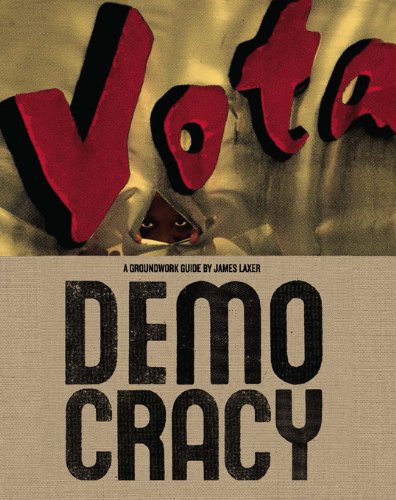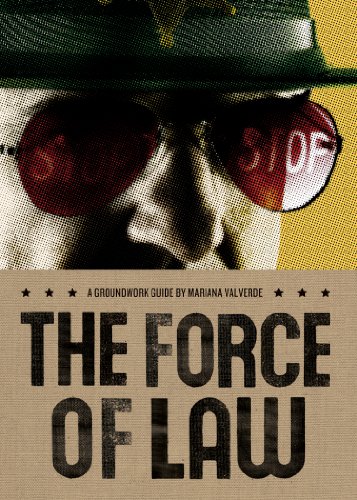-
Slavery Today
Kevin Bales, Rebecca Cornell
Hardcover (Groundwood Books, Aug. 28, 2008)Forced to work in back-breaking, under- or unpaid jobs from agricultural work to prostitution, slaves today men and women, old and young are trapped in the same spiral of brutality and control they have endured for centuries, with one crucial difference: a collapse in the price of human beings. Globalization, governmental corruption, and the population explosion have thrust billions of people into the pool of potential slaves. This huge surplus of impoverished people has pushed the human price tag to only $100, the cost of a pair of designer” jeans. This means that it’s worse to be a slave today than ever before. Slavery Today traces the "products" created by this inhuman system from the jungle and farm through the global markets and into our lives and homes. It addresses the controversies over prostitution and the buying back of slaves while presenting solutions and ways readers can get involved in the growing global anti-slavery movement.
-
Genocide
Jane Springer
Paperback (Groundwood Books, Aug. 28, 2007)Some view the systematic killing, rape, and destruction of homes in Darfur as a grave humanitarian crisis. For others, it’s a clear example of the ultimate crime against humanity genocide. Who is right? What is genocide? Who are the endangered human beings in today’s world? What is the impact on humanity of wiping out entire groups of people? This thoughtful book helps young readers understand these and other difficult questions. Providing an overview of the history of genocide worldwide, the book explores the paradox that while a person who murders another person can be tried and even executed for the crime, a person who murders hundreds or thousands of people usually goes free. Using case studies of acts of genocide throughout history, the book points out the unique character of each while at the same time establishing important links between them. Most importantly, the book answers the question, What can be done to prevent genocide from happening in the future?
-
Hip Hop World: A Groundwork Guide
Dalton Higgins
Paperback (Groundwood Books, Sept. 29, 2009)In Hip Hop World, Dalton Higgins comprehensively examines the hip hop scene as it exists throughout the world. The book reveals the form's musical inspirations from Trinidad, Puerto Rico, Cuba, Jamaica, African American sex satirists, comedians, civil rights-fuelled funk musicians, spoken word luminaries, and dub and Nuyorican poetry. Author Higgins examines hip hop's racial, multicultural, and multilingual listening audiences, the development of global rap slanguage and its influence on standard English lexicons, and hip hop herstory and cultural taboos around sexuality. He highlights the burgeoning Aboriginal hip hop scenes in Canada and Australia, and movements in colleges across North America and Europe that use hip hop lyrics and artistry to help engage students in learning. Critical of hip hopsters' use of language, the cult of bling, violence, and money, this book takes readers beyond a superficial look and delves into all the issues surrounding this form. Higgins taps into his own powers of pop culture prognostication to predict the future of the genre and the youth culture that spawned it, as this irresistible musical and cultural form spreads literally to the furthest reaches of humanity.
-
Being Muslim
Haroon Siddiqui
Paperback (Groundwood Books, Sept. 2, 2008)Long a charged topic in the West, Islam has become incendiary since 9/11, drawing heated reactions from both defenders and critics. The two sides rarely talk, and when they try neither seems to listen. Equally helpful for Muslims and non-Muslims, this book is a cross-cultural attempt to bridge these worlds. Based on the author's travels in Muslim lands and his interviews with experts, Being Muslim examines the impact of terrorism on Muslims and explains how Islam works in the daily lives of believers. Siddiqui dissects the Western media's treatment of Islam and Muslims, shows how extremists are being challenged by a new Islamic generation, and tackles the controversial topics, from terrorism to the treatment of women, that have been used to mischaracterize Islam and its adherents. Being Muslim also shows why there are good reasons to expect a future of mutual understanding. Charts, a glossary, and suggestions for further reading accompany the text.
-
The Betrayal of Africa
Gerald Caplan
Hardcover (Groundwood Books, March 5, 2008)In the wealthy West, it's assumed that Africa is the problem and we are the solution. This timely book argues the opposite. Though couched in benevolent terms, Western policies in fact have for decades helped fuel the continent's devastating decline. Every year, far more of Africa's riches flow out to the rich world than we plough into Africa. In this systematic process of exploitation, explains author Gerald Caplan, first-world leaders work in happy harmony with African despots to wreak havoc on their nations and peoples. The Betrayal of Africa explains its historical background, the contemporary situation, and how a conflation of elements China's bold new presence in Africa, an active and angry civil society demanding government reform, and fresh leadership is creating the possibility for positive change. Using simple, lucid language, the book helps Western readers understand what they can do to remedy a complex, increasingly dire situation that affects us all.
-
Slavery Today
Kevin Bales, Rebecca Cornell
Paperback (Groundwood Books, Aug. 28, 2008)Forced to work in back-breaking, under- or unpaid jobs from agricultural work to prostitution, slaves today men and women, old and young are trapped in the same spiral of brutality and control they have endured for centuries, with one crucial difference: a collapse in the price of human beings. Globalization, governmental corruption, and the population explosion have thrust billions of people into the pool of potential slaves. This huge surplus of impoverished people has pushed the human price tag to only $100, the cost of a pair of designer” jeans. This means that it’s worse to be a slave today than ever before. Slavery Today traces the "products" created by this inhuman system from the jungle and farm through the global markets and into our lives and homes. It addresses the controversies over prostitution and the buying back of slaves while presenting solutions and ways readers can get involved in the growing global anti-slavery movement.
-
The Betrayal of Africa
Gerald Caplan
Paperback (Groundwood Books, March 4, 2008)In the wealthy West, it's assumed that Africa is the problem and we are the solution. This timely book argues the opposite. Though couched in benevolent terms, Western policies in fact have for decades helped fuel the continent's devastating decline. Every year, far more of Africa's riches flow out to the rich world than we plough into Africa. In this systematic process of exploitation, explains author Gerald Caplan, first-world leaders work in happy harmony with African despots to wreak havoc on their nations and peoples. The Betrayal of Africa explains its historical background, the contemporary situation, and how a conflation of elements China's bold new presence in Africa, an active and angry civil society demanding government reform, and fresh leadership is creating the possibility for positive change. Using simple, lucid language, the book helps Western readers understand what they can do to remedy a complex, increasingly dire situation that affects us all.
-
Genocide
Jane Springer
Hardcover (Groundwood Books, Aug. 18, 2006)Some view the systematic killing, rape, and destruction of homes in Darfur as a grave humanitarian crisis. For others, it’s a clear example of the ultimate crime against humanity genocide. Who is right? What is genocide? Who are the endangered human beings in today’s world? What is the impact on humanity of wiping out entire groups of people? This thoughtful book helps young readers understand these and other difficult questions. Providing an overview of the history of genocide worldwide, the book explores the paradox that while a person who murders another person can be tried and even executed for the crime, a person who murders hundreds or thousands of people usually goes free. Using case studies of acts of genocide throughout history, the book points out the unique character of each while at the same time establishing important links between them. Most importantly, the book answers the question, What can be done to prevent genocide from happening in the future?
-
Technology: A Groundwork Guide
Wayne Grady
Hardcover (Groundwood Books, Dec. 14, 2010)Technology is the most prevalent and powerful force in the modern world. Different aspects of technology play immense roles in our lives, from determining how doctors treat diseases to the kinds of energy we use to fuel our vehicles, from providing us with means of exploring the universe to communication systems like cell phones and the Internet. But technology is more than the sum of the tools we use it’s also a way of thinking about the world. Technology follows the development of tools and their use, from the dawn of civilization through to modern times and even into the near future. It traces the development of technology from a tool in the service of science and humanity to a force more powerful than religion and politics an entity that now appears to be controlling its own destiny as well as ours.
-
Democracy
James Laxer
Paperback (Groundwood Books, April 28, 2009)Democracy explains the rise of this form of government and how women and minorities struggled for and won democratic rights for themselves. In clear prose, author James Laxer relates the story of the replacement of Communist regimes in the Soviet Union and Eastern Europe by ostensibly democratic political systems. In some of these countries, he argues, democracy has flourished, while in others authoritarianism is on the rise. Showcasing examples from all over the world, the book examines the current status of democracy in both developed and developing nations. Throughout, Laxer demonstrates that democracy is about much more than the right to vote, warning readers that globalization and the widening gap between rich and poor threatens to weaken democracy and the vigor of democratic regimes even in countries where it has been long established. Only sustainable environmental policies and basic economic fairness, says Laxer, offer hope for democracy’s survival.
-
Climate Change
Shelley Tanaka
Paperback (Groundwood Books, Feb. 21, 2012)There is no longer any question that the planet is warming, and that this warming is caused by human activity. Shrinking glaciers and melting permafrost, erratic weather patterns and threatened water supplies are already affecting the lives of people around the globe.Climate change has been called the single greatest threat confronting societies today. The crisis is real, but there is little consensus about how to confront the problem, because the science is complex, the economic, political and social implications of taking action are far reaching, and the scope of the problem is vast.Climate Change — A Groundwork Guide addresses the main questions. What is happening, and how did we get here? What is the basic science behind climate change? What is going to happen in the future? Why is it so hard for us to accept what is going on, and what can we do about it?Perhaps most important, this book acknowledges that the issue involves much more than agreeing on the underlying science. Climate change is an emotionally charged political and philosophical issue as well. It affects how governments and industry form policy, the choices we all make in our daily lives, how we look at the rest of the world, and what kind of world we want to leave to future generations. And it is an issue of particular importance to young adults, because long after our current leaders are dead and gone, it is young people who will be left to deal with the consequences bequeathed to them by today’s policy-makers.Charts, maps, glossary, index and suggestions for further reading accompany the text.The Groundwork Guides provide an overview of key contemporary political and social issues. Engaging, concise and clearly written, these books tackle pressing and sometimes controversial topics, offering both a lively introduction to the subject and a strong point of view.
-
The Force of Law
Mariana Valverde
Paperback (Groundwood Books, April 27, 2010)As citizens of liberal democratic countries, we think that we live under the rule of law. Governments make the rules, we live by them, and the police enforce them. The Force of Law critically examines these assumptions. Criminologist Mariana Valverde makes clear that while the law is usually regarded as the civilized, nonviolent way to deal with harms and conflicts, violence is integral to it. Police are authorized to handcuff, tase, and even kill people; courts of law confine people to prison and, in some countries, the state can put people to death. The Force of Law stimulates readers to become more informed about law and law enforcement and more active in efforts to make policing accountable to the public.